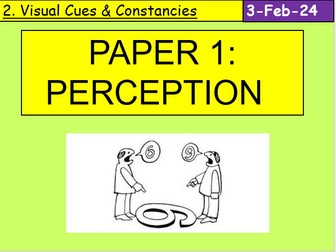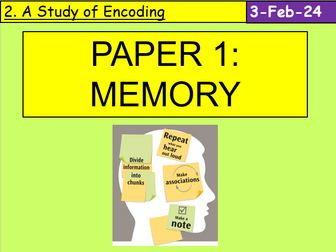
AQA GCSE Psychology: Paper 2 - Language, Thought & Communication BUNDLE
This contains all lessons in the Perception topic for AQA GCSE Psychology containing Powerpoints for each subtopic and associated worksheet. Also includes knowledge organisers for revision.
Piaget’s theory of language & thought
The Sapir-Whorf hypothesis
Our view of the world
Human vs animal communication
Von Frisch’s bee study
Eye contact
Body language
Personal space
Non-verbal behaviour - Darwin’s theory
Non-verbal behaviour - Innate or learned
Non-verbal behaviour - Yuki’s study of emoticons

